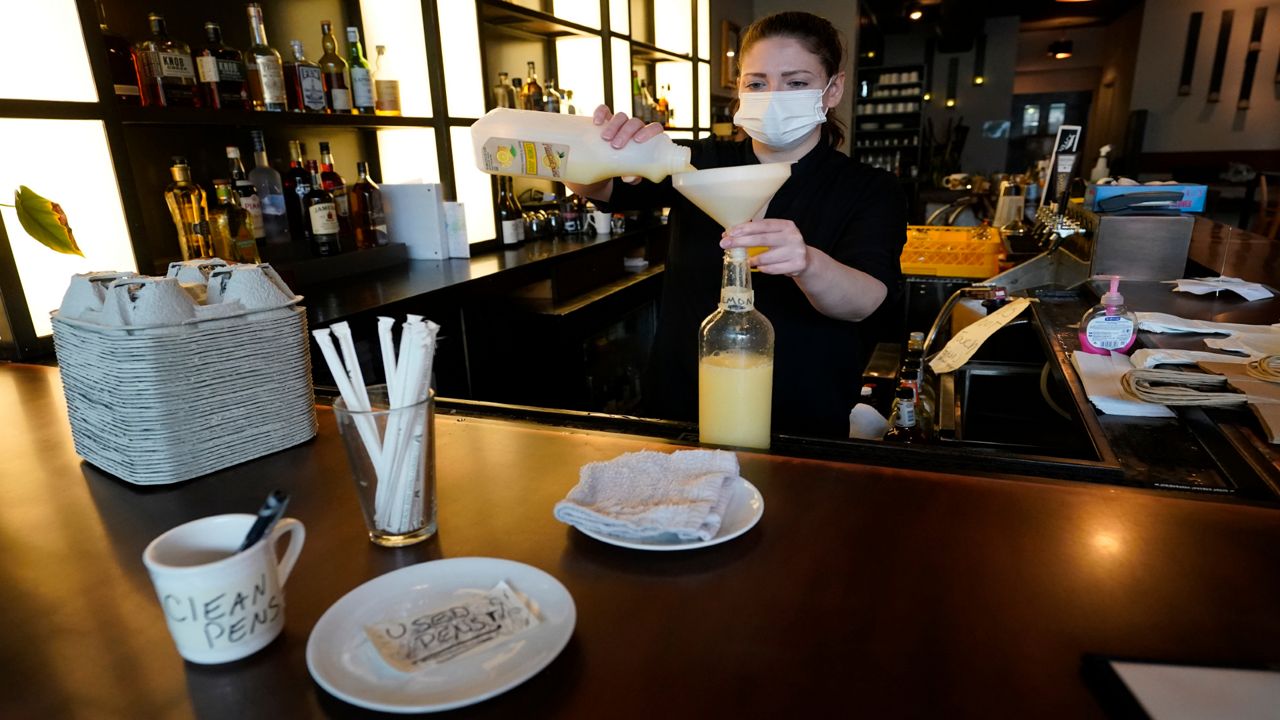It’s lights out and doors locked at 10 p.m. for restaurants and bars starting Friday, the first major rollback of loosened restrictions amid a second coronavirus wave in New York.
Governor Andrew Cuomo announced the new rule, which only allows for takeout orders after that time, as coronavirus cases across the city and state have continued to climb over the past few weeks.
At the same time, the city is preparing to shut down in-person learning at all schools once the city’s seven-day coronavirus infection rate crosses the 3% threshold. With the number currently at 2.72%, Mayor Bill de Blasio said on Friday that schools may go fully remote as soon as Monday.
However, critics of the 10 p.m. restriction, which applies to any establishment with a liquor license, say it puts an undue burden on businesses without any evidence that it will effectively help curb the rising tide of infections in the city. Many also take issue with schools shutting down before other types of indoor activities are halted.
“We don't need to prioritize people getting their meals at a restaurant,” said Dr. Jennifer Lighter, an epidemiologist at New York University, about indoor dining. “What we need to prioritize is children having in-person school.”
Research has suggested that schools and children have not acted as COVID-19 superspreaders. And in New York City, randomized testing of more than 16,000 staff and students has not revealed any major outbreaks and has resulted in only 28 positive tests.
While experts like Dr. Lighter acknowledge that the 10 p.m. curfew is a step in the right direction—theoretically cutting down on social interactions where people might be more inebriated, and thus more likely to break public safety guidelines—it won’t solve the city’s growing coronavirus problem.
“I appreciate that we're conservative and that we're taking measures,” she said. “We're not Florida, where everybody's not wearing face masks. I like that New York City has a different culture, and that we use science and evidence, but we need to go the step further. And it's a little more granular than just stopping late-night activities.”
City Council member Mark Levine, chair of the Committee on Health, also thinks the 10 p.m. curfew isn’t an adequate measure to meet the challenges of this moment.
“It's not enough,” Levine said. “We're too far along. The second wave is here. Cases are rising at an alarming rate, and we need more dramatic action.”
He is pushing to shut down indoor dining altogether.
“The reasons are clear,” he said. “People generally can't wear masks because they're eating and drinking and doing a lot of talking and laughing in close quarters, usually in spaces with bad ventilation. It is clearly high risk for transmission of the coronavirus. And we've got to move quickly to limit in-person interactions indoors now, or we're going to be faced with much more difficult decisions in two weeks.”
And while restaurant owners say the restriction puts an undue burden on their businesses, which have been struggling to stay afloat over the past year, Levine thinks that staying fully open will only lengthen the economic crisis. But without direct financial assistance from the federal government in the form of a stimulus package, the city and state will have to make tough decisions to help out the struggling businesses.
“We need direct financial assistance, and that will likely require the Biden-Harris administration to take office,” he said. “And that means we have a couple of months of desperation, and the city and the state are going to have to come up with funding, even if it means borrowing to help keep these businesses afloat. But allowing them to continue indoor dining, while it will be a short-term boost to their bottom line, it only makes it more likely that we'll need a full shutdown, a stay-at-home order in the weeks ahead, and no one wants to come to that. That will be even more economically devastating.”
According to Cuomo, more severe restrictions may go into effect depending on what the numbers show.
"These measures are appropriate at this point in time, in anticipation of what we see as potential spread,” he said this week, during one of his regular press conferences. “But these are all calibrations. Remember, restaurants [and] bars at one time were at zero, and then we started to open them up. Now that positivity rate is up, we’re starting to back off. If we don’t get the compliance, if the numbers don’t come down, we will back off more."
He also responded to the idea that economic activity and public safety are mutually exclusive.
“It was never binary, economic activity or public health.it was always both,” he said. “You want economic activity to increase, you open the valve, you see the positivity rate going up... back off on the valve."
"Losing money hurts,” Cuomo said. “But money can be replaced. Losing a loved one hurts forever."



